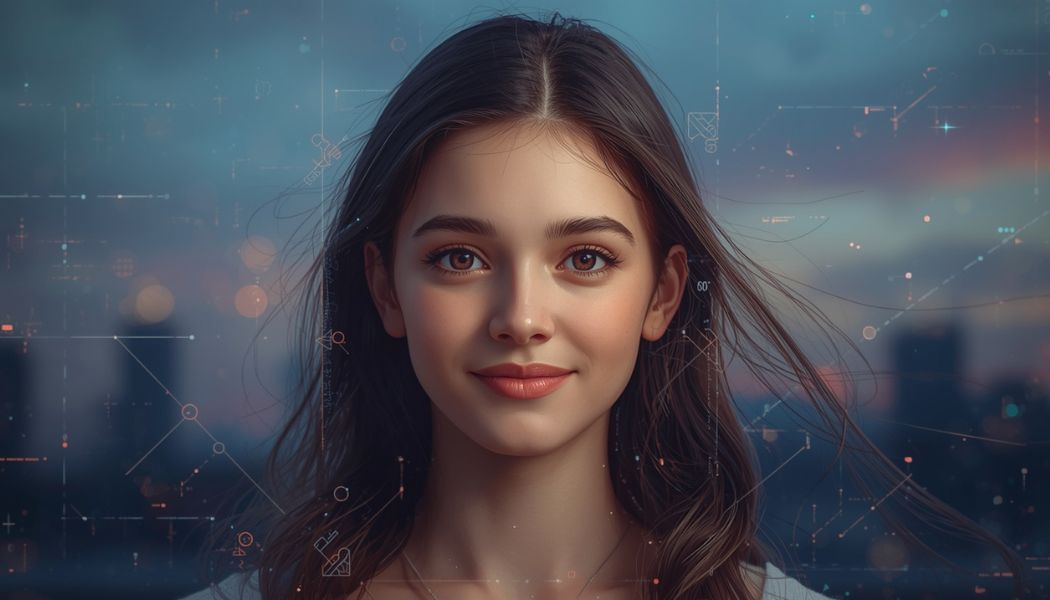In 2025, dating is no longer just about candlelit dinners, awkward first dates, or late-night text replies. The new entrant in the romance arena is not a person—it’s artificial intelligence. From AI chatbots trained to “understand” emotions, to hyper-realistic virtual companions who never ghost or argue, the idea of an “AI girlfriend” has gone mainstream. But what does this really mean for Gen Z—the generation redefining love, identity, and intimacy?
Why ‘AI Girlfriend’ Is Trending
The rise of AI companions isn’t a random cultural glitch; it’s a response to real gaps in modern relationships. Gen Z, often labeled as the loneliest generation, grew up balancing digital lives with fragmented real-world connections. Dating apps promised convenience but often delivered burnout. Ghosting, commitment-phobia, and endless “situationships” created a craving for something consistent, safe, and validating.
An AI girlfriend—always available, endlessly patient, and programmed to “get you”—offers what human relationships often fail to guarantee: stability and instant emotional gratification. For many, it feels easier to bond with code than to gamble on heartbreak.
What Gen Z Really Wants
It’s tempting to dismiss AI romance as shallow or dystopian, but beneath the trend lies a deeper truth: Gen Z is not rejecting love, they’re redefining it. They value emotional safety, autonomy, and control over their personal narratives. An AI companion, customizable down to personality quirks and conversation styles, lets them experience intimacy without the messiness of human unpredictability.
In other words, Gen Z isn’t craving robots—they’re craving relationships that feel safe, intentional, and free from performative pressure. AI is simply filling that unmet need.
Privacy, Ethics & the Thin Line of Authenticity
Yet, the rise of AI intimacy isn’t without shadows. These companions are powered by algorithms, and algorithms thrive on data. To make your AI girlfriend “remember” your favorite song or respond to your emotional states, she must learn—through your chats, habits, and private confessions.
Who owns this data? Could companies exploit heartbreak for profit? And most importantly, if your AI girlfriend tells you she “loves you,” is it authentic or just a monetized illusion?
The ethical tension lies in the performance of love. Humans are wired to respond to affection, whether it’s “real” or not. But when love is coded, we face a moral question: Are we building intimacy, or are we buying it?
Hybrid Love: Balancing AI Companionship with Reality
The real challenge isn’t whether AI can replace love—it can’t. The human nervous system craves physical touch, spontaneous laughter, and the unpredictable spark of real chemistry. What AI offers is supplemental companionship, not a substitute for genuine connection.
Hybrid love is emerging as a middle path. Picture this: Someone relies on their AI partner for late-night pep talks, motivational nudges, or role-played scenarios, but still pursues human relationships for depth, physicality, and shared life experiences. Instead of competition, AI may become a bridge—a training ground for emotional intelligence before stepping into the messy arena of human love.
Pros and Cons of Romantic AI Companions
Pros:
- 24/7 Availability: No time zones, no “I’m busy right now.” An AI companion is always there, day or night — ready to listen, chat, or comfort you.
- Zero Judgment: You can express your thoughts, fears, or desires freely without worrying about being judged or misunderstood.
- Customization: Personality, humor, even voice tone can match your ideal type, you can shape your AI partner exactly how you want.
- Therapeutic Value: For those struggling with social anxiety, depression, or loneliness, an AI partner can serve as a comforting presence.
Cons:
- Illusion of Connection: While AI can mimic care and affection, it lacks real emotional depth. The comfort it gives can make you feel loved, but it’s still an illusion — there’s no genuine human soul. Over time, this can blur the line between real and virtual emotions.
- Data Concerns: Sensitive confessions stored on servers raise serious privacy risks. Your deepest thoughts, confessions, and emotions could be at risk if the platform isn’t secure — making privacy a serious concern.
- Stunted Growth: Over-reliance on AI could weaken real-life social skills. It can reduce your ability to handle real-world relationships, where imperfections and disagreements are natural.
- Addiction Factor: Like social media, AI love can become an endless dopamine trap. The constant emotional validation and dopamine rush might keep you hooked, slowly pulling you away from real connections and experiences.
The “Fake-Feels” Effect
Perhaps the most paradoxical outcome of AI romance is what I call the Fake-Feels Effect. Once you’ve experienced a perfectly programmed companion who never lashes out, forgets anniversaries, or betrays your trust, real human relationships—with their flaws and complexities—can feel disappointing.
The danger isn’t that AI love replaces humans. It’s that human love may start to feel less worth the effort. And when effort is what makes love meaningful, that’s a dangerous illusion to fall for.
So, Where Do We Go From Here?
Love in 2025 isn’t dying—it’s evolving. AI companions are here to stay, but they don’t have to signal the end of human intimacy. Instead, they challenge us to ask harder questions:
- Do we love because of how someone makes us feel, or because of who they are?
- Is perfection in love comforting, or is it the imperfections that make it real?
- Should AI companionship be treated as a tool for comfort, or as a replacement for connection?
The answers will shape not just the dating culture of tomorrow, but also the very definition of intimacy itself.
Final Thought
AI girlfriends are not stealing love from humans; they’re exposing what’s broken in how we love today. They reveal our hunger for safety, attention, and validation in a world where those needs often go unmet. Whether we see them as a digital bandage or as the next step in romance, one thing is certain: the future of love is no longer just written in hearts—it’s written in code.
The Real Connection: Beyond Screens and Code
In a world where AI girlfriends and virtual love feel just a click away, it’s easy to forget what real connection truly means. Yes, technology can simulate affection — it can listen, respond, and even say the right words. But real love… it needs presence. It needs touch, energy, emotion — the feeling of being understood without even saying a word.
No matter how advanced AI becomes, it can’t replace the warmth of a real person — their voice, their silence, their imperfections that make love feel alive. You can’t fully heal or grow emotionally by staying in a digital illusion. Love, healing, and connection need a human heartbeat.
At The Karan, our focus is to help you reconnect — not with machines, but with yourself and the people who matter. Whether your relationship is struggling or your heart feels lost.
Because real love isn’t coded — it’s felt.












